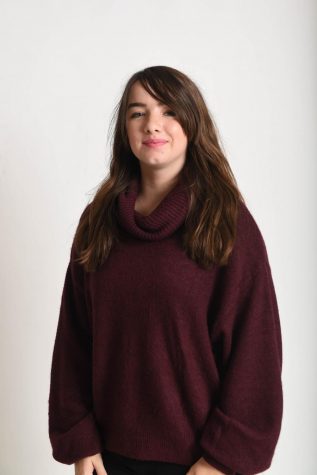#MeToo
How the Twitter movement brings attention to the magnitude of the sexual assault issue
A forced kiss. A whistle from a passing car. Unwanted touching. Rape. The numerous forms of sexual assault affect many aspects of society, leading people everywhere into lives filled with fear and anguish.
In the light of Harvey Weinstein’s sexual harassment allegations and the #MeToo campaign, in which victims of assault come forward and share their experiences, students Jane Doe, John Doe, and Marie Major have decided to speak about what they have been through.
Jane had just finished 8th grade when she was assaulted by her friend at Del Amo Mall.
“We were having a fun time, but then he kept trying to grab me. I was unsettled, but I just brushed it off. Then it happened again. He just kept trying to grab my boobs and my butt and I was telling him to stop, I never said it was fine,” Jane said.
Although the experience made her feel awful, she also became angry at the fact that it happened at all.
“It should never happen to anyone. You feel gross and you feel like you did something wrong. You feel guilty and think that maybe you’re making it up, but you have to remind yourself that you went through it and you lived it and you came through it. You’re stronger now because of it, but it never should’ve happened in the first place,” Jane said.
Jane didn’t realize she had been sexually assaulted until this year after seeing the #MeToo on Twitter.
“I kept thinking about it from his perspective and it took me until recently to realize he should’ve known to stop because I told him to and I never gave any indication that it was okay,” Jane said. “It came through when saw things on the internet. I would listen to people share their experiences and realized that what happened to me isn’t normal and shouldn’t happen to anyone.”
After what happened to her, Jane stresses “holding people accountable for their actions.”
“Abusers need to be held accountable for their actions, but what if they don’t know what they did was horrible? That’s why I like things like #MeToo and other things that are talking about sexual assault,” Jane said. “I think it helps educate people who have been on the bad end of that situation and the abuser’s side. It’s not forgiving them, but it’s educating them.”
She also wants other people to recognize the many different forms of assault.
“What I want people to understand is that it’s not always rape. I was groped and I feel gross saying it, but that’s what happened to me, even after I said no, and that’s a form of assault,” Jane said.
Walking home every day from school, Marie Major was followed by a group of boys who initially began playing an innocent game which turned into a sexual bet.
“It was the game that guys played where if they’d lose a bet or something, they’d have to go grab a girl inappropriately,” Major said. “Boys would come up to me and grab me, they’d laugh it off and I’d have to laugh it off and that’s just how things went most of the time.”
Like any 13-year-old, Major believed that any type of attention was positive until she realized how being harassed made her feel afraid of walking home.
“When I first started having encounters where boys would grab me, I had just started undergoing puberty and I had never received attention from boys before,” Major said. “At first, part of me was glad that guys my age were displaying their attraction for me and honestly, I liked the attention. But it started to grow into something completely different and began to feel like I was being assaulted.”
Major considers society’s view of sexual harassment to be wrong because of how it has become too normalized.
“That’s how we view sexual harassment in our society, we see it as ‘boys will be boys,’ that is just how we treat young men and women in our society,” Major said. “We just tell ourselves that ‘they’re just guys goofing around, don’t make a big deal out of it.’”
When Major tried to seek help, she gave up and believed her efforts were ineffective.
“In the beginning when I began to realize that it obviously was not okay to touch my body without my permission, I would try to speak out against it,” Major said. “Obviously, other guys didn’t see the issue with it so I told friends and some adults and then I quickly realized that it was just the way of the world. That things don’t change, that people didn’t care that I felt violated.”
Major hopes that people make sexual harassment more easy to talk about as opposed to deeming it as a taboo subject.
“I would not equate my situation with someone who has been raped. That is an entirely different situation,” Major said. “But I do think sexual harassment should be taken more seriously. The aftermath of the way I feel about myself now because of what I went through is something I won’t ever be able to recover from.”
While at a party last year, John was raped by a girl.
“I had been drinking, I was crossed. She was not intoxicated at all and was aware that I was crossed. That’s why it’s so hard for me I guess,” John said. “If she was drunk then I’d totally get it, that stuff happens all the time. But I was almost blacked out and she was not.”
He never expected something would happen at the party and wasn’t very good friends with his assailant.
“Since there were so many people, I didn’t think it would happen. I remember she was there while I was drinking, but I didn’t think anything would happen because who does?” John said. “It wasn’t the first time I had talked to her because I’ve texted her before, but not really as a friend.”
John, not remembering the assault, didn’t know what had happened until later when he received a video of it.
“I just remember waking up at [my friend’s] house, because he was having a party that night. She sent me a video of her having sex with me,” John said. “I have texts saved, but I know I’ll never use it. I know her and her family and they’re really nice people. I don’t wanna ruin anything. I’m letting her get away with it. It’s just difficult for me.”
After realizing he was raped, John blamed himself for what happened.
“I thought that it was my fault for about two and a half months. I was convinced it was my fault because I was crossed. That was my thing, I just thought ‘it’s not on her, it’s on me’,” John said.
Because of his assault, John finds dating more difficult.
“It’s hard to be with a girl now or to do anything sexual with girls, all I think about is her, John said. “Guys always talk about wanting to have sex with a girl but now I have to care about girls I have sex with. I have to really know them and be with them for a while to do anything with them.”
However, the most difficult part for John has been the way the girl acts whenever he happens to see her.
“Since then, I’ve seen her in public. She acted like nothing happened, which is the worst part. She was just acting like we’re friends,” John said.
Working as a psychologist for over 20 years, Cathleen Carlson has seen the impact of sexual assault, even in close relationships.
“You can’t go through physical, sexual or emotional abuse without coming out with scars. The women that I’ve seen have come to my door with black eyes or fat lips, but they want to go back to their perpetrator.”
Carlson noted that her patients were hesitant upon sharing their past experiences with sexual harassment or assault.
“Victims find it hard to talk about it because they’re embarrassed,” Carlson said. “It’s really a ‘he said’ and ‘she said’ situation and they’re afraid no one will believe them.”
As many stories have come out recently about the sexual harassment and assault claims against Harvey Weinstein, Carlson asserts that victims had to keep their incidences to themselves in order to further progress in the movie industry.
“Women, especially in the film industry, have very little power. What normally happens is whatever harassment or abuse they get, they have to internalize it. They start blaming themselves for what happened,” Carlson said.
Even when victims report their encounters with sexual assault, their offenders usually suffer no consequences.
“The system is rigged that way. Women are not believed and that makes them more susceptible to more abuse. The perpetrators have it so they’re in power. Most of the judges are men, half of the juries are men and in a ‘he said’ and ‘she said’ situation, the men are most likely to be believed,” Carlson said.
Carlson believes that men have an active role to play when it comes to standing up for sexual assault survivors.
“As more women break the silence and come out about this, more men are going to have to come out and talk about it too,” Carlson said. “What we need are good men who will stand up with the women and call out other men, in that way we have a coalition of people, not just women versus men.”
Sexual assault can happen to anyone and take many different forms. People all over the world are affected, regardless of gender.
“We can fight assault by holding people accountable for their actions. You should always take preventative actions. If you hear someone you know is possibly being abused, you should check it out,” Jane said. “There shouldn’t be any ‘accidents’ or someone ‘just messing around.’ If it happened, the person is probably suffering. We can’t let people off the hook so easily.”

Hi I’m grace. My personality is mainly comprised of a busy schedule, buzzfeed quizzes, and Jeff Buckley.



